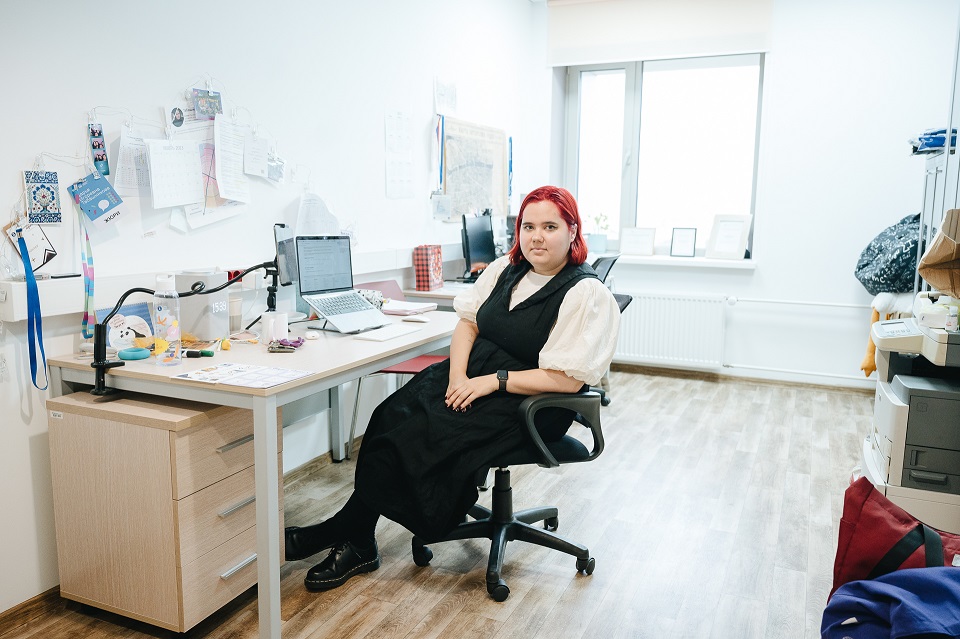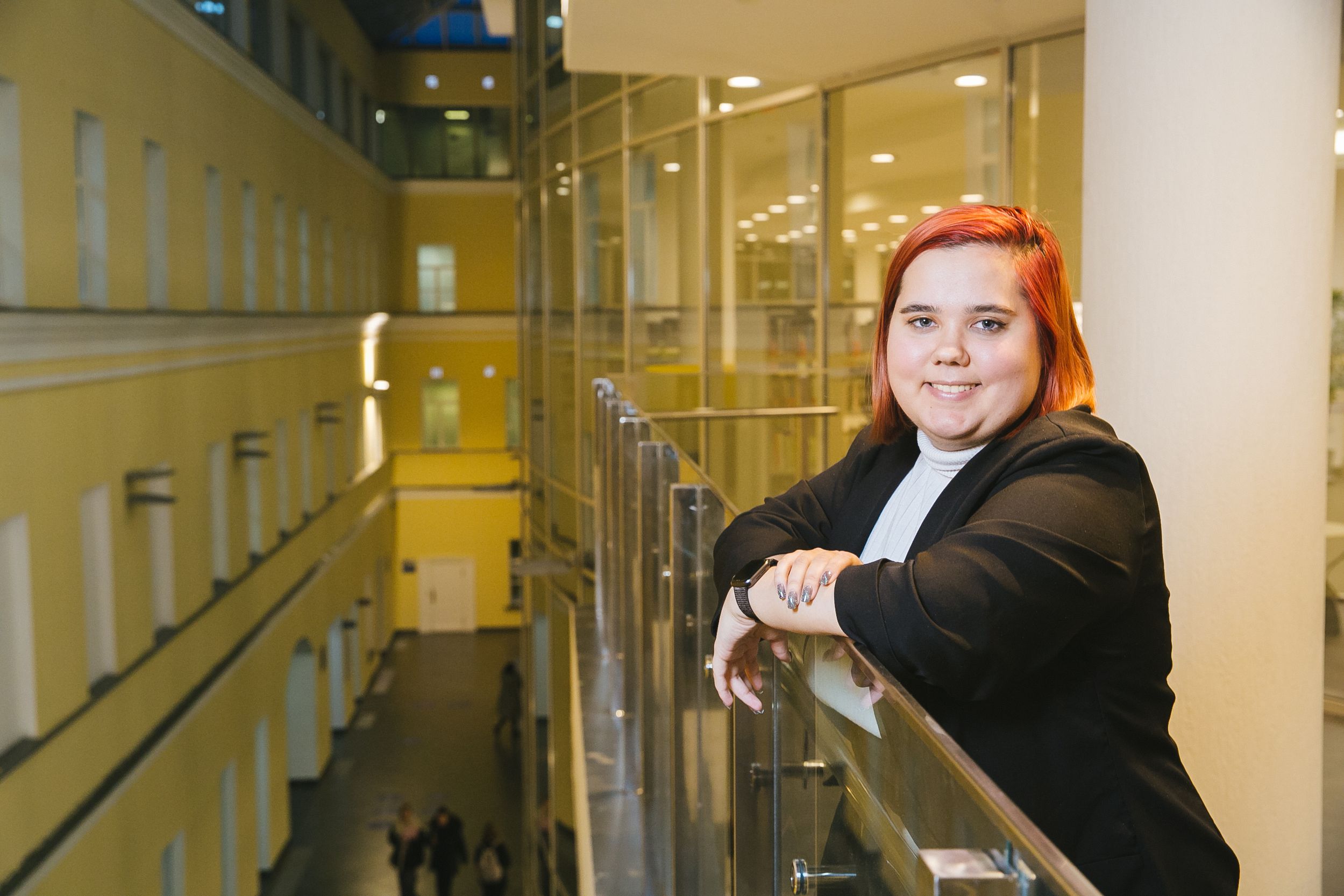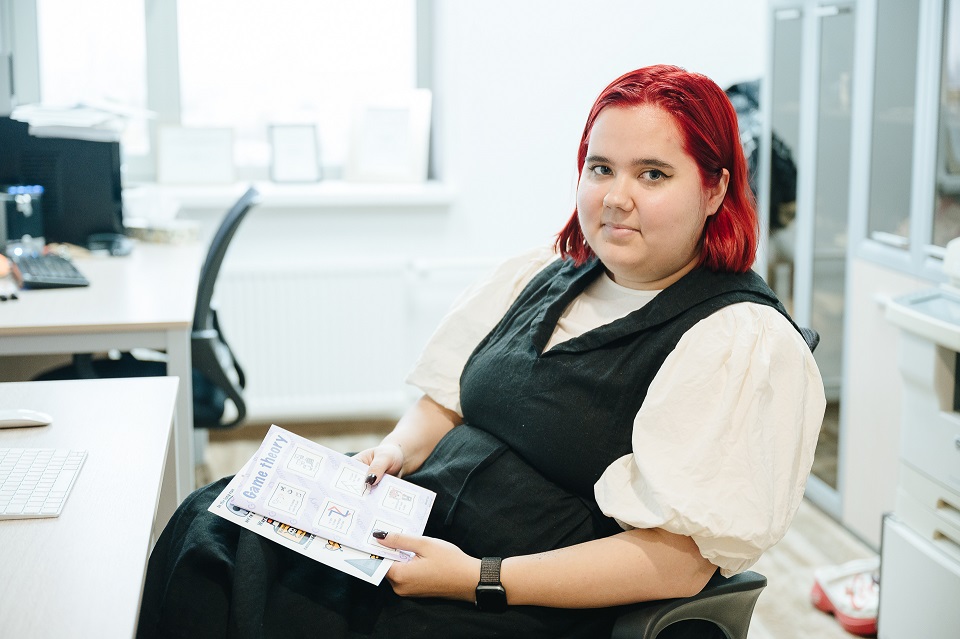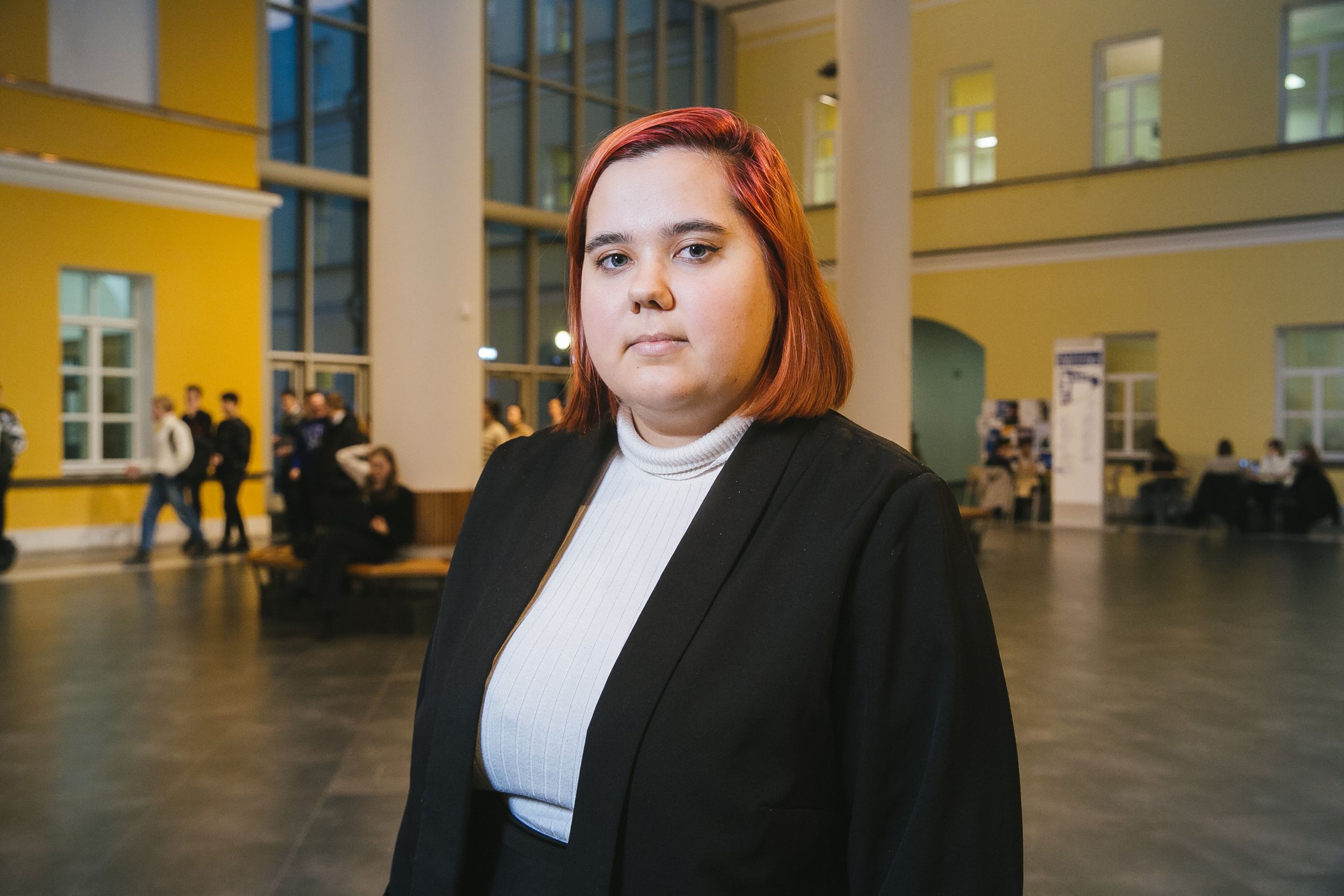'There Is Nothing Absolute in People's Behaviour'
Daria Tabashnikova
Daria holds a bachelor's and a master's in economics from HSE University. She is currently a research assistant at the HSE Laboratory of Sports Studies. She is also an assistant and a first-year doctoral student at the Department of Theoretical Economics of the HSE Faculty of Economic Sciences and an expert at the HSE Project Laboratory for Development of Intellectual Competitions in Economics.
Daria Tabashnikova studies sports economics and constructs mathematical models for predicting athletes' behaviour. In her interview with the HSE Young Scientists project, she speaks about double-elimination tournaments, her love of checkers, and game theory stickers.
Why I Decided to Pursue Science
In the middle of the first year of my bachelor's degree, I had the option to join the ‘research student cohort’—now referred to as the first student cohort—which involves an in-depth study of certain disciplines. I performed well on tests in mathematical disciplines and won the opportunity to study within this student cohort. In class, we were informed about the workings of science, potential avenues for pursuing a doctorate, and the reasons why it might be of interest to us.
However, I could not envision myself engaging in science right away. It has been a gradual process. In my first and second years, I experimented with internships in the industry. However, most of the students I socialised with were focused on science; therefore, in the third year of my studies, I embraced the opportunity offered by my academic supervisor Marina Sandomirskaia to try my hand at the role of a research assistant at the HSE Laboratory for Market Studies and Spatial Economics.
With her guidance, I chose the subject of my term paper: unsportsmanlike conduct at tournaments, such as match-fixing. While this was not her primary area of interest, she became intrigued—we began studying tournaments and continue to this day.
Since tournaments are predominantly a sporting phenomenon, I concluded that the Laboratory for Sports Studies was the ideal fit for me and joined it in the first year of my master's studies. However, I am engaged in other projects at the laboratory, while tournaments remain my personal research focus.

The Subject of My Research
I am primarily engaged in theoretical research, focusing on two broad areas. The first involves a comparison of tournament formats. For instance, I investigate ways a tournament can be designed to increase the likelihood of the strongest player winning or to improve the spectacle of matches, so they may attract a larger audience.
The second area of research focuses on specific sports. Currently, I am working on a project that examines marathons, specifically exploring how the competitive environment influences whether an athlete runs faster or slower. It is obvious that an athlete aiming for first place does not compete with all marathon runners in the race, but rather with a select group of the strongest participants. We are examining how the number of competitors with comparable strengths impacts an athlete's performance.
We hypothesised that when an athlete has fewer competitors in a race, they may exert less effort, given their confidence in the likelihood of winning. We tested this hypothesis on Russian data and discovered that it holds true for women; specifically, the number of competitors correlates with a reduction in the time an athlete takes to complete a marathon.
The Results and Achievements I Am Proud of
In my fourth year of study, I received the Silver Nestling scholarship. In the last year, I have presented at several conferences, including the 65th MIPT All-Russian Scientific Conference, where I was awarded for the best report made at a breakout session.
I am also truly proud of my students. I like observing their growth and success in their respective fields, which is partly attributable to the knowledge they have gained from me.

My Favourite Sports
Despite working at the Laboratory of Sports Studies, I seldom watch sports; however, I enjoy playing streetball and basketball. I have been playing checkers since childhood, and I plan to participate in a checkers tournament when time permits.
My Dream
I dream of making a meaningful contribution through my research. I aspire to achieve results that can be applied in practice and witness the positive changes from their implementation.
I do not have any publications yet, so my immediate goal is to publish an article. The text has already been written and requires copy editing before being submitted to the journal. The article compares single-elimination tournaments, which are prevalent, with double-elimination tournaments. I was interested in understanding why tournament organisers might choose the second option and how it could be beneficial for them in terms of profits.
The Economics of Sports
This is a relatively new field of research in economics, which at HSE University is led by Dmitry Dagaev, head of our laboratory.
Science is, globally, a search for answers to questions. Locally, it involves the pursuit of specific projects in a team alongside other researchers. Science involves numerous smaller processes, such as selecting a topic, reviewing available literature, conducting research using various methods, interpreting results, and finally, writing a paper.
Economics is a social science, a study of people and their behaviour. There is nothing absolute in people's behaviour. There are theoretical models based on observations that economists have made and found accurate in various instances. For instance, economists believe that as we consume more apples, the utility (in terms of pleasure from consumption) derived from each subsequent apple diminishes. In recent years, with the ability to collect and process data, economics has shifted towards analysing real-world behaviour, reflecting how people truly act, rather than relying solely on theoretical constructs. Many theoretical models are now tested using real-world data.
Where I Source Material for My Research
In my tournament research, I have no empirical data available and rely solely on theoretical models with mathematical calculations. Suppose I have a hypothesis that suggests the larger the prize, the more effort players make during a match. Building on this hypothesis, I develop a model that incorporates players' efforts, the probability of winning, the prize, and associated costs.
In contrast, the marathon project relies on data gathered from tournament organisers' websites. There is no theoretical component; it solely involves empirical research.
The third avenue for obtaining research material is to conduct an economic experiment. We know what the theory predicts, and we devise an experiment to validate the outcomes projected by the model.
Here is an example. In September, I attended the Third Pacific School-Conference on Experimental Economics, co-organised by the Far Eastern Federal University and HSE University. As part of this event, we prepared a research proposal for comparing various types of tournaments. We devised a laboratory experiment with very straightforward conditions. Next, our plan is to conduct tests and observe how people behave and whether their actions align with our assumptions.

A Typical Day
I come to the office at Pokrovka between 9 and 11 am. I work on my tasks and sometimes teach classes. I go home between 10 and 11 pm. Compared to working at home, I find working at the office more convenient, because I can focus better and avoid distractions.
How I Deal with Burnout
At some point, most people question why they are in their current job, whether it is what they truly want or whether they should have chosen a different path. Occasionally, I entertain such thoughts as well. It also happens that things don’t work out every now and then. Either I lack the necessary competencies to accomplish the task, or something else gets in the way. Such situations often make me sad. How do I handle them? By reaching out to various people. When I need advice, I turn to my supervisors. When I want to discuss whether I have made the right choice, I can talk to my friends. They always reassure me and affirm that I am doing great. All of this motivates me to continue my work.
My Interests Besides Science
Most of my time is dedicated to economics; I teach classes, create and evaluate olympiads for school and university students. My hobby is also somewhat related to economics. I make drawings on my iPad. For instance, I have created stickers on economic topics such as market mechanisms and game theory. I have had them professionally printed and sometimes give them out to students and friends. I also enjoy baking cakes.
What I Have Been Reading and Watching Lately
My preferred genre is detective fiction, including works by Agatha Christie and contemporary authors, but excluding Nordic noir. I particularly enjoy detective stories set in the 19th century, and I am currently finishing a series of Sherlock Holmes books. Recently, I rewatched The Big Bang Theory. The characters in the show, like me, work at a research institution, and although their area is physics, I can still relate to their lives.

Advice for Aspiring Scientists
Try your hand at various pursuits and do not be afraid to do so. Bachelor's students I have spoken to often believe that they are still too young for serious science and cannot work in laboratories alongside seasoned scientists. In reality, if something has captured your interest, you will do better seeking a job at a relevant laboratory, writing a paper on the topic, and submitting it to a contest. Don't hesitate to approach HSE University staff who are studying the topic of your interest. I am certain that many of them would be pleased to discuss their work with early-career scientists and listen to their ideas.
My Favourite Place in Moscow
I studied at the HSE Lyceum in Bolshoy Kharitonievsky Pereulok, and starting from the 10th grade, spent a lot of time in the vicinity of Chistye Prudy. I have many fond memories associated with the place. I also love Izmailovsky Park, which is relatively close to where I live. It is typically quiet, with people strolling around with their dogs or children. I enjoy taking walks there with my corgi, Winnie.